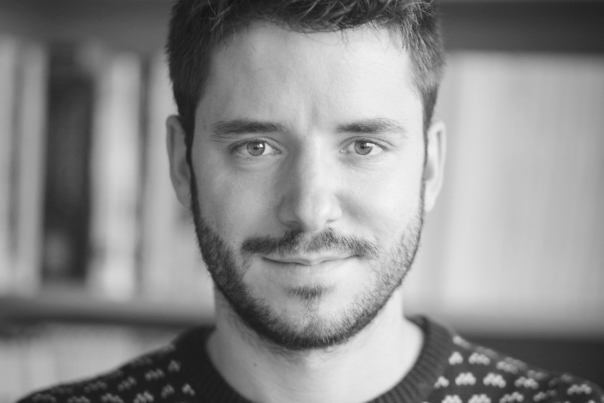Fellow NARC 2025-2028 | Arthur Borriello (EMCP Faculty - Transitions Institute) has been awarded an FNRS-MIS funding for scientific research. His mandate began in January 2025 for a period of 3 years.
Presentation
Arthur Borriello has been Professor of Political Science at the University of Namur since February 2023 and is a member of the Institut Transitions. Holding a PhD in political and social sciences from the Université libre de Bruxelles in 2016, his thesis focused on the mechanisms of depoliticization at work in the discourse justifying austerity plans in Southern Europe during the eurozone crisis (2010-2013). He then carried out several years of post-doctoral research, first at Cambridge University as a Wiener-Anspach Foundation laureate, then as a scientific collaborator and FNRS research fellow at Cevipol (ULB).
His research then focused on the emergence and gradual institutionalization of left-wing populist movements in reaction to the austerity context studied above. During these research years, he spent time as a visiting researcher at a number of other institutions (College City of New York, University of Essex, Universidad Complutense de Madrid, Università Federico II di Napoli, SciencesPo Paris).

Research
Arthur's current research focuses on the effects produced by the irruption and consolidation of new actors, in European partisan systems, following the crisis of 2010-2013, by analyzing both the discourses and the organizations, repertoires of action and strategies of the various parties.
More specifically, his research is developed around three interconnected axes:
- The study ofthe institutionalization of populism and the radical left: how do the political movements that emerged in the 2010s evolve in contact with institutions and at the whim of alliances? How do they adapt their discourse and modes of operation? What strategic dilemmas do these organizations face on the road to institutionalization, and what internal tensions do these dilemmas generate?
- An analysis of the evolving social and trade union anchoring of parties in Belgium. Belgium seems to be experiencing, in slow motion, the socio-political upheavals that have affected other European countries for several decades, marked by increasing fragmentation and polarization of the political offer, combined with a decline in intermediary bodies. This line of research aims to understand how relations between parties and unions are reconfigured in such a context. For this line of research, Arthur benefits from FNRS funding in the form of a PDR in partnership with fellow sociologists at METICES (ULB).
- The study of the recent evolution of the social-democratic family in Europe. One of the historical political families most affected by the succession of crises (economic, migratory, health, geopolitical, etc.) is unquestionably the social-democratic family. However, it has shown remarkable resilience in several countries (Belgium, Spain, Italy), sometimes even managing to be reborn where it was given up for dead (Greece, France). The aim of this line of research is to examine how this family of parties is adapting ideologically, organizationally and strategically to the increasing number of crises it is experiencing, and to the exacerbation of political competition with "anti-system" players (populist, far-right or radical-left). To carry out this work, he was awarded a Mandat d'impulsion scientifique (MIS) by the FNRS.
Summary of the FNRS MIS grant project - "A social-democratic phoenix? The trajectories of social democracy after the eurozone crisis".
How are the so-called "traditional" parties reacting to the rise of new political competitors, increasingly numerous since the 2008 crisis? In particular, how have social-democratic parties, cornerstones of post-war partisan systems and archetypes of mass parties, reacted to the irruption of populist and/or radical-left players promising a renewal of political practices and an overcoming of historical cleavages?

This project sets out to understand why and how social democratic parties have adapted their ideology, organization and repertoires of action in response to these socio-political transformations.
It compares four countries (Belgium, Spain, France, Italy) where center-left parties have been confronted with major transformations in their environment over the past decade, but which also offer a wide variety of situations in terms of economic context, institutional system, or the structure of political competition. By studying it from an interactive and dynamic perspective, this research project aims to better understand the recent evolution of the social-democratic family and thus intends to contribute, more globally, to knowledge on the recomposition of partisan systems as a whole.
Mentor | Christopher Bickerton
Christopher Bickerton is Professor of Contemporary European Politics in the POLIS Department and Official Fellow at Queens' College, Cambridge. He defended his doctoral thesis at the University of Oxford (St John's College) in 2008 and has since held teaching posts at Oxford, the University of Amsterdam (UvA) and Sciences Po Paris.
He has published numerous books and articles covering various fields of social and political science. These include three research monographs: European Union Foreign Policy: From Effectiveness to Functionality (Palgrave Macmillan, 2011; paperback edition 2015), European Integration: From Nation-States to Member States (Oxford University Press, 2012) and Technopopulism: The New Logic of Democratic Politics (Oxford University Press, 2021, co-authored with Carlo Invernizzi Accetti). His 2012 book on the transformation of the state received the Best Book Award from the University Association of Contemporary European Studies. His articles have appeared in the Journal of Common Market Studies (JCMS), Political Studies, International Politics and the Revue Française de Science Politique.
In 2016, he published the bestseller The European Union: A Citizen's Guide with Penguin, nominated for the Baillie-Gifford Prize, Britain's leading literary award for non-fiction. Outside of academic publications, he has written articles for the Financial Times, Wall Street Journal, The Guardian, New York Times, Foreign Policy, Foreign Affairs and The Big Issue. He is regularly interviewed by national and international radio stations, and has been a contributor to the podcast Talking Politics.
As an analyst of developments in partisan competition and the rise of techno-populism in Europe, in relation to European integration and the transformations of the state it produces, Christopher Bickerton is a major source of theoretical inspiration for the research project developed by Arthur Borriello. The dilemmas currently facing social-democratic formations are largely determined by the context described and analyzed by Professor Bickerton in his research. The two political scientists met in 2016-17, during a research stay carried out at Cambridge University by Arthur and supervised by Christopher.
Affiliation | Institut Transitions
The Transitions Institute's research focuses on areas of critical importance such as the environment, the economy, politics, mobility, law, justice, social cohesion, development, education, protection against vulnerability and more. Arthur Borriello is active in the Democratic Transformations Cluster.

Arthur Borriello in the media
- 20/01/2025 | Newsroom - A prestigious FNRS MIS funding for Arthur Borriello
- 08/11/2024 | www.rtl.be - Is Georges-Louis Bouchez right to compare the PTB with the Vlaams Belang?
- 25/04/2024 | www.rtbf.be - Complaint against Pedro Sanchez's wife: an earthquake of a magnitude of 7 on the Spanish political scale
- 26/03/2024 | Newsroom - Politics: 5 questions to ask in order to understand the rise of the far right in Europe
- 04/10/2023 | Newsroom - HECTOR, the podcast that questions science: season 2